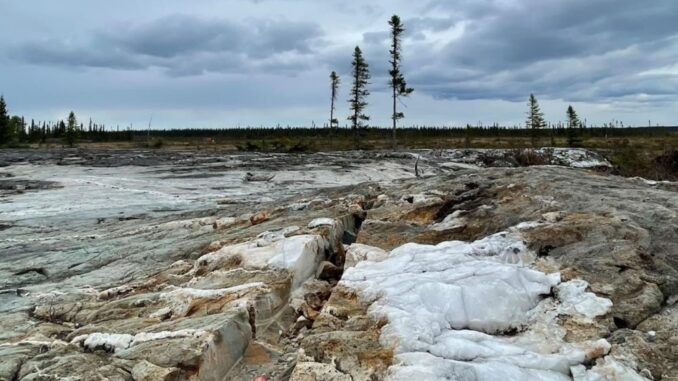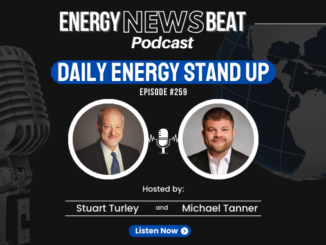
Two activist shareholders with ‘substantial’ holdings in Azimut Exploration (TSXV: AZM) have accused the junior of “squatting” on some of Quebec’s most prospective lithium lands.
Coloured Ties Capital (TSXV: TIE) and privately held Bullrun Capital this week issued a second open letter to Azimut’s founder, president and CEO Jean-Marc Lulin, accusing the geologist of refusing to acknowledge or engage with them about its detailed exploration plans for its James Bay lithium portfolio.
The activists are turning up the heat on Lulin and Azimut after the Corvette lithium discovery by Patriot Battery Metals (TSXV: PMET; ASX: PMT; OTCQX: PMETF) and the Adina discovery of Winsome Resources. Patriot aims to publish the first resource on Corvette this summer.
The concerned shareholders say they are active investors in Quebec’s critical mineral exploration projects via investments in junior explorers.
“These companies have made discoveries that have made James Bay the lithium exploration capital of the world and provided amazing shareholder returns to all investors in the James Bay region,” they said in a Tuesday press release.
For example, Patriot enjoyed a more than 2,200% run-up in its equity through January.
In contrast, Azimut holds what the activists believe is the best and most prospective critical minerals ground in the region. Recently, Azimut went on a staking frenzy to stake additional ground.
The activists argue Azimut’s stock price has a discounted valuation compared with its peers. It reflects the market’s frustration with Azimut’s refusal to explore these vast critical mineral land holdings and its sole focus to expend all its efforts and working capital in searching for gold deposits in remote locations of the province.
“This practice to acquire vast critical mineral land holdings in Quebec and then squat on these highly prospective lands is in direct contrast to others from outside Quebec and Canada who may ‘know the land less’ but have established critical minerals deposits on ground adjoining or surrounding Azimut ground in the last three years,” the activists charged.
They’re advocating for a revamp of Azimut’s business practices. They insist the company establish a critical minerals division and engage a qualified critical minerals exploration executive team to run it.
They want Azimut to engage in business practices that are respectful of all shareholders, adjoining property junior exploration companies and all other stakeholders, including Canada’s current mandate to develop critical minerals assets in Quebec.
In a response on Thursday, Azimut characterized the activists’ assertions as containing “numerous inaccuracies, mischaracterizations, and false statements.”
“The recent re-election of all company’s directors at the annual general shareholders’ meeting, with support ranging between 92.5% and 99.9% of the shares voted at the meeting, demonstrates that shareholders endorse the company’s current leadership and business strategy,” Lulin said in the statement.
Bullrun Group’s ‘bullying tactics’
The company said it had demonstrated an openness to the activists’ repeated requests for meetings and communications in the past. “However, rather than engage constructively, the Bullrun Group has adopted bullying tactics to drive their self-interested agenda forward,” Lulin said.
Azimut said it had engaged in conversations and written exchanges with the group on several occasions regarding their intent to acquire a stake in several of Azimut’s properties. “Following those exchanges, which have unfortunately escalated to multiple harassing and belligerent messages, the board determined that the propositions of the Bullrun Group were not compelling for Azimut or its shareholders, and the board concluded that it was not in the company’s best interest to further engage with the Bullrun Group at that time.”
In February, Azimut outlined its key 2023 objectives for its lithium properties.
At the Pikwa and Galinée properties, it plans to implement an aggressive field program to assess the lithium potential. The properties are directly on strike with the two most important recent lithium discoveries (Corvette and Adina) in the Eeyou Istchee James Bay region. Azimut holds the assets in a 50-50 joint venture with Soquem.
The company also holds 100% of the Corvet and Kaanaayaa lithium prospects. It plans to implement an aggressive field program to assess the lithium potential on these properties located south of the Corvette discovery area.
Lastly, Azimut also holds the James Bay lithium project, one of the largest lithium portfolios in the Eeyou Istchee James Bay region, comprising 16 claim blocks for 2,234 claims. It plans to undertake reconnaissance prospecting supported by remote sensing and advanced geochemical targeting this year.
Shares in Patriot had come down from its 12-month high of C$17.69 to currently trade at C$11.20, still up 1,500% over the last year, giving it a market cap of about C$1 billion. Shares in Azimut are down 10.7% over the 12 months at C$1.16, after also spiking recently to a year high of C$1.80. It has a market cap of C$92.2 million.



